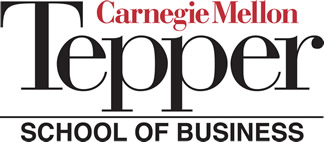« Writers of the Future Awards Ceremony | Main | ROSETTA STONE INC. VERSION 3 »
August 28, 2007
Tepper School of Business Study Shows Unethical Conduct Often Inadvertently Overlooked : GlobalGiants.com
Research Shows How 'Boiling Frog Syndrome' Is Recipe for Unintentional Misconduct.

PITTSBURGH, Aug. 28 -- In the wake of ethical debacles in major businesses like Enron, Tyco and WorldCom, new research from the Tepper School of Business at Carnegie Mellon University suggests that unethical behavior in corporate settings is often not born of a deliberate intent to defraud by a few bad apples. Rather, it's the slow erosion of individuals' behavior within the organization - small deviations that eventually become part of the norm - that go unnoticed and unreported, highlighting the need for companies to redouble their commitment to an open, transparent corporate culture.

Unethical behavior that develops incrementally over time, or along the "slippery slope," is much less likely to be noticed by an individual, according to the study "Slippery Slopes and Misconduct: The Effect of Gradual Degradation on the Failure To Notice Others' Unethical Behavior." Co-author Francesca Gino, visiting assistant professor in organizational behavior at the Tepper School, conducted a series of experiments testing individuals' ability to observe and identify ethical misconduct that occurred either gradually or abruptly. The research was conducted in partnership with Max Bazerman, the Jesse Isidor Straus Professor of Business Administration at the Harvard Business School.
"We find that most individuals are more apt to engage in unethical behavior when it falls along the slippery slope, because they aren't aware that it's happening," Gino said. She noted that, in many ways, it's similar to the "boiling frog syndrome," referring to the adage that frogs immediately hop out of boiling water, but when put in unheated water fail to notice a gradually rising temperature and eventually cook to death.
According to Gino, members of an organization may eventually realize that something is wrong, but by then may believe they have a conflict of interest for failing to report the misconduct and thus ignore the unethical conduct and contribute to it becoming ingrained in the culture. "Once the ethical line has been crossed, an institutionalization of corruption can occur in which unethical acts become a common part of daily activities and people often have a vested interest in remaining quiet," she said.
Gino and Bazerman conducted four experiments with 330 subjects who were shown pictures of jars filled with pennies, with each experiment providing different estimates for the amount of money in the jars. Some of the changes in estimates were gradual while others were more abrupt. Subjects were asked to play the role of "approver," accepting or rejecting the estimates, and were told that they and the estimators would be paid more for higher-approved estimates; however, they would risk a penalty for approving egregiously exaggerated estimates. Overwhelmingly, the results indicated that individuals were much less likely to notice this "unethical behavior" when it occurred gradually rather than abruptly.
Gino and her colleague also sought to gauge the effects of incentives, such as the increased payments for higher-approved estimates, on participants' tendencies to overlook gradual degradation. In the end, they discovered that such incentives made little difference in the perception of others' ethical behavior. Gino says these findings provide further evidence to support the conclusion that failure to notice gradual erosion -- and not a deliberate attempt to defraud -- is to blame.
According to Gino, the best way for companies to combat unintentional tendencies that may represent unethical behavior is to focus on changing the organizational factors that make these types of gradual breakdowns possible, rather than attempting to change individual employee behavior. Within an organization, the human resources department is best suited to spearhead efforts at such reform, she says.
But, first and foremost, says Gino, "Companies must more clearly and consistently communicate ethical standards to employees and strive to create a culture in which there's a commitment to doing the right thing and in which people are encouraged to speak up." While Gino acknowledges that there is a role for industry-specific regulation to address some aspects of unethical conduct, she adds that such regulation should be carefully scrutinized to assess other, unintended consequences.
Founded in 1949, the Tepper School of Business at Carnegie Mellon is a pioneer in the field of management science and analytical decision-making. The school's notable contributions to the intellectual community include six Nobel laureates and a consistent presence in the top tier of business school rankings. |GlobalGiants.com|







Edited & Posted by the Editor | 3:02 PM | Link to this Post






